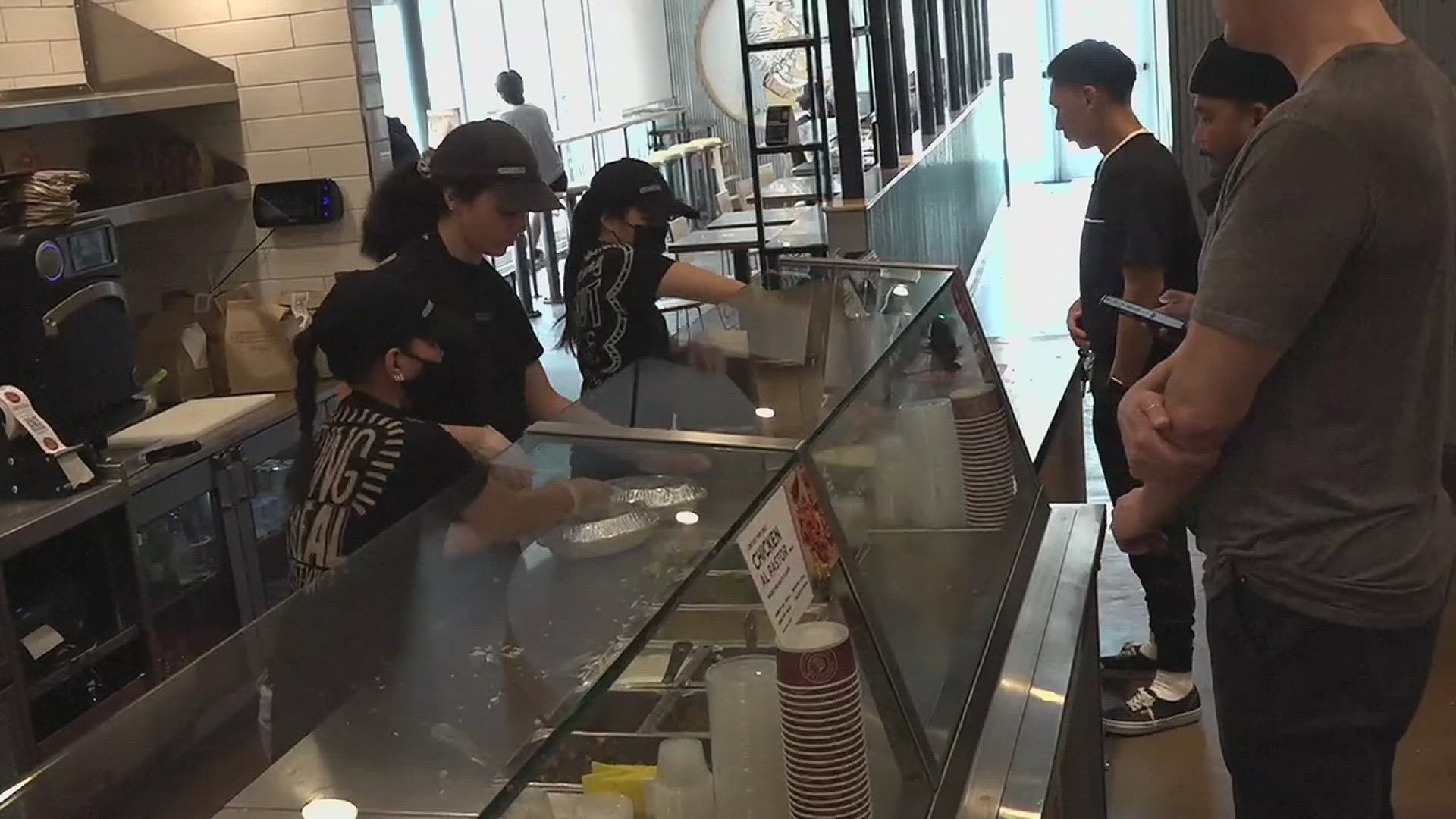MOLINE, Ill. — Last September, California Governor Gavin Newsom signed into law Assembly Bill 1228 which raised the minimum wage for many fast-food workers within the state to $20 per hour. The law went into effect on April 1. But the new law isn’t without controversy. Though advocates argue it provides many fast-food workers a more “living wage”, opponents say it could drive consumer prices even higher.
News 8's David Bohlman spoke with Mark Grywacheski from the Quad Cities Investment Group about the new law and what it could mean for the workforce.


David: What can you tell us about the specifics of this new minimum wage law in California?
Mark: The new law covers fast-food workers employed by companies that have 60 or more locations nationally — so, primarily fast-food chains. But even if you’re a franchisee of just one of these fast-food restaurants, you’re still subject to this new law.
California already has one of the highest minimum wages in the nation.
This new law creates a distinct minimum wage for much of the fast-food industry of $20/hr compared to $16/hr for all other workers.
- By comparison, Iowa’s minimum wage is $7.25 per hour, which matches the federal minimum rate.
- Illinois also has one of the higher minimum wages in the nation at $14 per hour.
- In Chicago, the minimum wage can rise to either $15 or $15.80 per hour depending on the number of workers.
David: What are some of the major arguments being made both for and against this new minimum wage law?
Mark: Supporters of this new law argue that it provides these workers a higher standard of living. Especially in California which is by far one of the most expensive states to live in.
But opponents of this bill cite three main challenges:
- The bill intentionally targets the national fast-food chains. So, even if your family business operates a single McDonalds, KFC, Pizza Hut or other national chain store, you now have to pay your employees $20/hr. But most of the luxury, high-end restaurants in the state are excluded from this new law. In fact, Gov. Newsom still has ownership in several high-end restaurants that are exempt from this $20/hr wage.
- These higher labor costs are forcing these fast-food restaurants to raise their prices even higher. There are reports in certain parts of the country the cost of a McDonald’s Big Mac Meal is nearly $18. It’s pricing out primarily low-income households who simply can’t afford to go to these restaurants anymore.
- We’re already seeing reports throughout California of many of these restaurants being forced to close because they simply can’t absorb these rising costs.
David: How are employers using technology to address the rising cost of labor? Is there a risk that one day employees are simply replaced by robots or some type of automation?
Mark: Over the past few years we’ve seen technology, AI and robotics increasingly being used by various industries to reduce the impact of these rising labor costs. Look at Amazon. They currently use 750,000 robots within their network of warehouses and they’re looking to ramp up the extent of automation even more.
For fast-food restaurants, these wage pressures have quickened the pace of automation within the industry. We’re already starting to see more and more self-ordering kiosks. But experts say this automation will soon extend to food preparation, packaging and even delivery. So, from the moment you place your order until the moment the food is delivered to you, that entire process is 100% robotics and automation.
Quad Cities Investment Group is a Registered Investment Adviser. This material is solely for informational purposes. Advisory services are only offered to clients or prospective clients where Quad Cities Investment Group and its representatives are properly licensed or exempt from licensure. Past performance is no guarantee of future returns. Investing involves risk and possible loss of principal capital. No advice may be rendered by Quad Cities Investment Group unless a client service agreement is in place.

